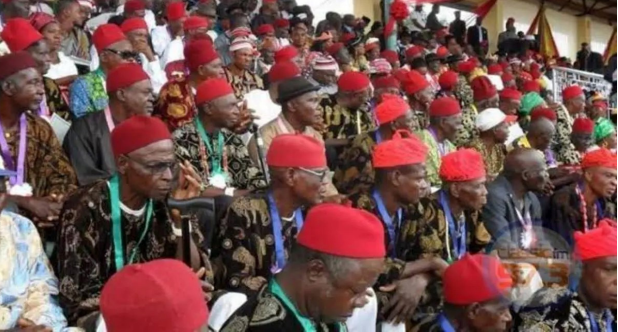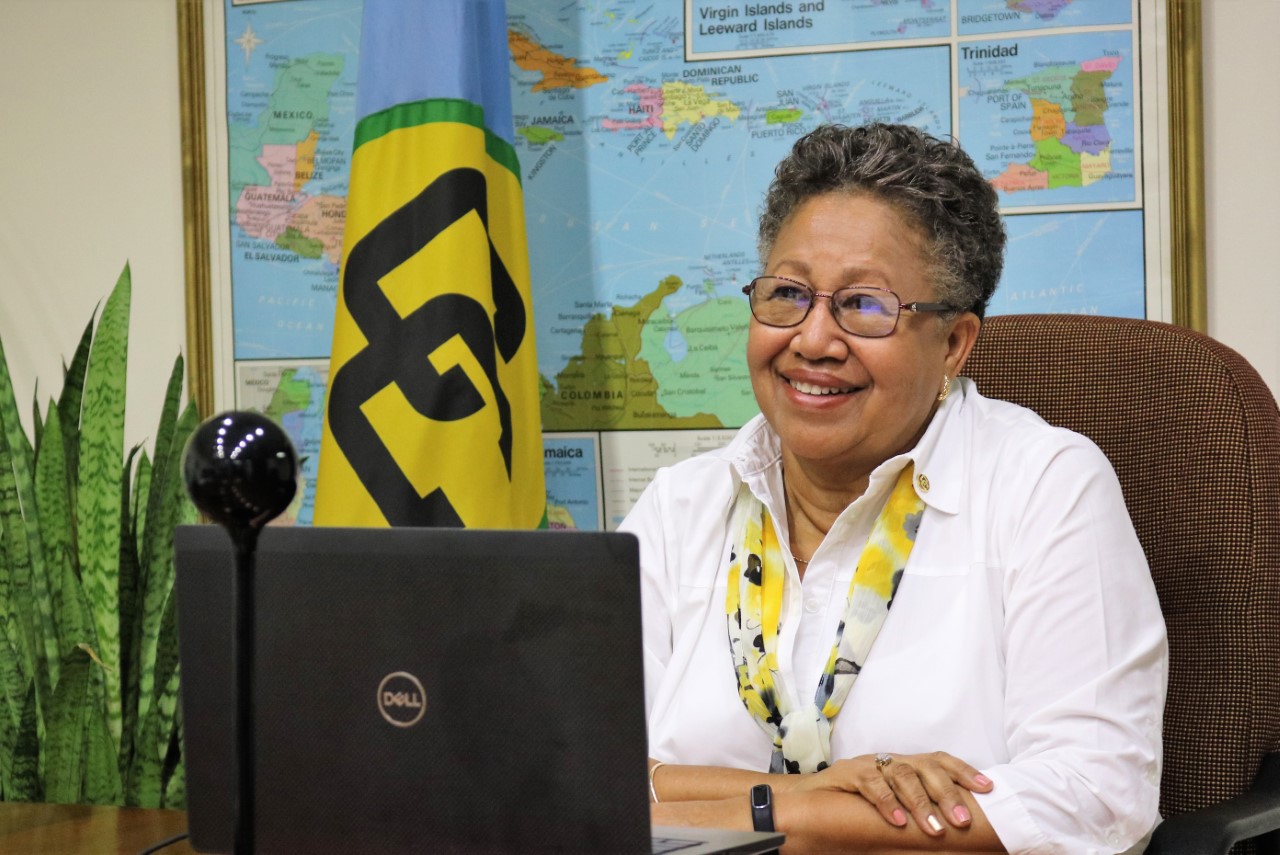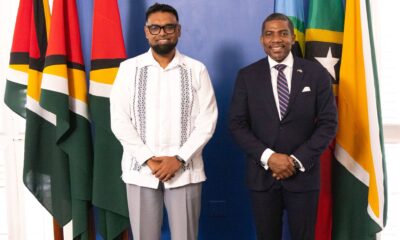Environment
In Igbo Cosmology, God Does Not Create Human Beings

Yes, in Igbo cosmology, God is not the creator of human beings as is found in the Christian or biblical story of creation. He also does not decide the destiny of human beings or when human beings should die. The creator of human beings in Igbo cosmology is chi, which Achebe translated as “personal god”. Each person has his or her own chi. Even animals have their own chi. Each person is created by chi. Each person’s chi is different. That is why Igbos say: Otu nne naamụ ma otu chi adụghụ eke (One mother may bear different children but one chi does not create them.) This is the source of the belief of the Igbos in the uniqueness of every individual.
The Power of Chi
Whether a person excels in life or not does not depend on God’s favour. It depends on the person’s chi. That is why the Igbos have names like Chinwoke and Chijioke (chi is in charge of sharing or allocating fortunes.). That is why any time something bad happens to an Igbo person (including the staunchest Christians even today), the person would exclaim: “Chi m e gbuo m ooo!” (My chi has “killed” me!). In fact, before the chi creates a person and sends the person into the world, the person and the chi will sit down and have a tête-à-tête. It aligns with the democratic ideology of the Igbo people. It is at that parley that the person’s fate is determined. That is where it is determined how long the person will live, where the person will be born, what the person will be, etc. That is why whatever happens to a human being, Igbos will say: O bu otu ya na chi ya siri kpaa (That is what he/she and his/her chi agreed.)
The Unbreakable Bond
People are encouraged to strive for success in life. That is why the Igbos say: Onye kwe, chi ya ekwe (If a person says yes, the person’s chi will concur.) But each person is like an animal held on a leash by the person’s chi. The animal can play, run and jump within the length of the rope, but not beyond it. Therefore, nobody can rise beyond what his/her chi has determined for him/her. That is why it is advised that when people have done their best but their chi says no, they should not be blamed (O mebere ma chi ya ekweghi, onye uta atala ya). Sir Warrior used it in his great song Nwanne Awu Enyi.
The Igbo Philosophy
Any time a person is due to depart from this world in line with the prenatal agreed length of time with the person’s chi, the chi will kill the person. Once the chi decides to kill the person, nobody can stop it. If there is a conspiracy against a human being but the person’s chi is not agreeable to it, that plot will not succeed. That is why the Igbos say that whatever conspiracy against a human being is futile if the person’s chi is not part of it. It is also believed that a human being can fight a monster with 20 heads and win but no human being can fight his or her chi and win. That is the crux of the story of the great warrior Ojaadili in Igbo folktales.
Good and Bad Chi
Interestingly, the Igbos say: Onye ka mmadu ka chi ya (Whoever is greater than another is greater than that person’s chi.) That is why the Igbos say: Onye na-ar onye ka ya anya na-eme ya nkiri (Whoever is eyeing his/her superior is merely admiring the person.) Finally, the Igbo cosmology has no angels or devils. It has chi oma and chi ojoo (good chi and bad chi). Each person can have a good chi (chi oma) or a bad chi (chi ojoo). If a person meets with too much ill luck, the person is told to reject his/her chi, die and come back to life with a
brand new chi.
Environment
Hurricane Melissa: CARICOM Reaffirms Support for Jamaica, Haiti

Hurricane Melissa: CARICOM Reaffirms Support for Jamaica, Haiti
CARICOM Secretary-General, Dr Carla Barnett, has restated the Community’s solidarity with Jamaica and Haiti following the devastation caused by Hurricane Melissa, saying the disaster reinforces the urgent need to strengthen regional resilience against climate change.
Dr Barnett made the remarks at the opening of the 61st Regular Meeting of the Council for Trade and Economic Development (COTED), where she also highlighted the importance of the CARICOM Single Market and Economy (CSME) in supporting sustainable growth amid recurring climate shocks.
She expressed sympathy to the Governments and people of Jamaica and Haiti over the loss of lives and widespread damage caused by the storm.
She commended the response of regional bodies, including the Caribbean Disaster Emergency Management Agency (CDEMA), the Caribbean Public Health Agency (CARPHA), private sector groups and other regional partners.
The Secretary-General also referenced the recent visit of four CARICOM Heads of Government to Jamaica as a strong demonstration of regional unity and a signal of continued support.
“The experience leaves us in no doubt about the urgency of addressing the existential threats posed by climate change and the need to redouble our efforts to build resilience and foster sustainable development across our Region,” she said.
“Strengthening our trade and economic performance is a critical part of this, and COTED must continue to play its important role in this regard.”
Chairing the meeting, Belize’s Minister of State for Foreign Trade, Hon. Marconi Leal, noted that the Region was dealing with complex global and domestic challenges that continue to test the resilience of individual Member States.
He said Hurricane Melissa further exposed the Caribbean’s vulnerability to climate threats, stressing the need for deeper cooperation and coordinated recovery efforts.
Minister Leal said COTED would deliberate on critical issues, including advancing the free movement of CARICOM nationals, implementing the Community’s Industrial Policy and Strategy 2035, and support measures under Article 164 of the Revised Treaty of Chaguaramas.
The 61st Regular Meeting of COTED reaffirmed CARICOM’s commitment to strengthening regional trade, deepening economic integration and advancing sustainable development across the Community.
Environment
Spain Introduces Disaster Preparedness Lessons for Children

Spain Introduces Disaster Preparedness Lessons for Children
In a bold move to strengthen climate resilience, Spain has announced compulsory disaster preparedness lessons for schoolchildren across the country.
The initiative, unveiled on Thursday by the Spanish government, is designed to equip children with knowledge and survival skills in the face of floods, wildfires, earthquakes and volcanic eruptions, which experts say are becoming more frequent due to the worsening climate emergency.
The development comes after a summer of devastating forest fires claimed four lives, and less than a year after catastrophic floods left more than 220 people dead in eastern Spain.
According to the Ministry of Education, the new programme will cover not only natural disasters but also industrial, nuclear and chemical accidents, as well as emergencies involving the transportation of hazardous materials.
Over 8 million pupils in 25,000 schools will benefit from the compulsory training, which will begin this academic year.
Lessons will be delivered through videos, infographics and other teaching tools, with children in infant and primary schools receiving a minimum of two hours, while older students will undergo at least four hours.
“Infant school children aged three, four and five will learn to recognise alarms and spot early signs of danger, as well as basic safety principles,” the ministry said in a statement.
“Older children will be taught how to seek higher ground during floods and to take cover under desks during earthquakes.”
The ministry added that students would also be educated on identifying disinformation during emergencies, a growing concern in the digital age.
Speaking at the launch in Cuenca, Prime Minister Pedro Sánchez stressed the importance of preparing young people to face disasters worsened by climate change.
“If we don’t want to bequeath our children a Spain that’s grey from fire and flames, or a Spain that’s brown from floods, then we need a Spain that’s greener,” Sánchez declared on September 1, calling for a “great state pact” to tackle the climate crisis.
The lessons form part of a 10-point government plan to safeguard Spain, which experts say lies on the frontline of Europe’s climate challenges.
Environment
Pacific Island Nations Lead the Charge in Climate Action

Despite contributing a mere 0.03% to global greenhouse gas emissions, Pacific Small Island Developing States (PSIDS) are setting a powerful example in climate leadership.
A new report by the UN Climate Change Regional Collaboration Centre for Asia and the Pacific reveals that these nations are making significant strides in meeting the goals of the Paris Agreement.
The 14 PSIDS have demonstrated their commitment to reducing emissions and promoting sustainable development.
All 14 countries submitted their first round of Nationally Determined Contributions (NDCs) by the end of 2015, with 11 submitting updated or enhanced versions since then.
These NDCs outline ambitious targets in renewable energy, sustainable transport, and nature-based solutions.
Six PSIDS aim for 100% renewable energy, showcasing a commitment to reducing dependence on fossil fuels.
Countries are also exploring eco-friendly transportation options to minimize emissions and initiatives focus on preserving and restoring natural ecosystems to mitigate the effects of climate change.
The Pacific Island nations are reframing climate ambition as a regional issue, intersecting with identity, sovereignty, and development.
The 2050 Strategy for the Blue Pacific Continent highlights the importance of ocean-based solutions and regional collaboration.
Several countries in the region are taking bold steps to address climate change.
Fiji was the first country to ratify the Paris Agreement and preside over a UN Climate Conference (COP 23).
The Marshall Islands was an early submitter of Intended Nationally Determined Contributions (INDC) and has integrated youth participation and Indigenous knowledge into its national climate agenda.
Papua New Guinea was the first to formally submit an NDC, with a target of 100% renewable energy by 2030.
Vanuatu is committed to rapidly phasing out fossil fuels and transitioning to a circular economy, with NDC targets conditional on scaled-up international support.
As the global community prepares for the third round of NDCs, the Pacific Island nations offer a clear message: the next generation of NDCs must aim higher and go further, turning ambition into action and action into survival.
With climate change posing existential threats to these nations, their commitment to limiting warming to 1.5°C is not just about reducing emissions – it’s a matter of survival.
-

 News6 days ago
News6 days agoTrump Hails ‘Turnaround for the Ages’ in Record 110-Minute Address
-

 News6 days ago
News6 days agoMexico in Turmoil After CJNG Kingpin Killed in Military Operation
-

 Analysis6 days ago
Analysis6 days agoSavannah Shield and the Security Recalibration of Kwara State
-

 Analysis6 days ago
Analysis6 days agoWho Is After Peter Obi? By Boniface Ihiasota
-

 News6 days ago
News6 days agoCARICOM Chair Engages Guyana in Fresh Push for Regional Integration
-

 News6 days ago
News6 days agoSenegal Moves to Raise Jail Term for Same-Sex Relations to 10 Years









